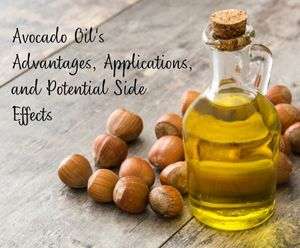Ginger oil has been used in traditional medicine for a long time. The plant part used for these purposes is known as the rhizome. Although it appears to be a root, the rhizome is actually an underground stem from which roots branch.
Ginger belongs to the same plant family as tumeric and cardamom. Ginger oil can be found all over the world, but it is most common in Asia and Africa. The plant’s scientific name is Zingiber officinale.
Ginger Oil
After distillation, ginger oil is extracted from the ginger rhizome. It’s very concentrated, just like other essential oils.
The aroma of ginger oil can be described as strong, warm, or spicy. As a result, it’s frequently used in aromatherapy. Ginger oil can also be used on the skin and hair in a variety of ways.
Evolution of Ginger Oil
Ginger Essential Oil or Ginger Root is derived from the root of the Zingiber officinale herb, also known as Ginger, which is named after the Greek word “zingiberis,” which means “horn shaped.” This flowering perennial belongs to the same plant family as Turmeric and Cardamom and is native to southern China; however, it has spread to other parts of Asia, India, the Moluccas (also known as the Spice Islands), West Africa, Europe, and the Caribbean.
The health benefits of Ginger Oil are the same as those of the herb from which it is derived, and the is even thought to be more beneficial due to its higher Gingerol content, a constituent known for its antioxidant and anti-inflammatory properties. Ginger Oil has earned the nickname “The Oil of Empowerment” for the feeling of confidence it is known to inspire, thanks to its warm, sweet, woody, and spicy scent that has an energising effect, especially when used in aromatherapy.
Advantages of ginger Oil
Anecdotal evidence suggests that ginger may have some advantages. This indicates that rather than being based on scientific research, they are based on personal accounts or testimony.
However, studies exploring the potential health advantages of ginger are still being conducted. To understand more about what the research concludes, keep reading.
Does ginger oil promote hair growth? Learn How It’s Beneficial for Hair
The ginger rhizome is used to make ginger . Ginger oil has a variety of smells and is highly concentrated. The oil of empowerment is another name for it. When ginger oil is applied topically, it contains antibacterial characteristics that kill bacteria, reduce redness, prevent the indications of ageing and skin damage, revitalise the skin, and lighten the complexion. The benefits of ginger essential oil for hair include treating dandruff, clearing the scalp, boosting blood flow, and encouraging hair growth.
Ginger is a fantastic home remedy for growing hair. When applied to the scalp, it stimulates blood circulation and accelerates hair development. It also helps to improve hair thinning. Additionally, it aids in the regeneration of new hair follicles and stops hair follicles from shrinking. Antioxidants like gingerol, which inhibit the free radicals responsible for hair damage, are found in ginger.
The enzyme 5′-reductase’s proliferation is inhibited by ginger . The enzyme plays a role in the process of turning testosterone into DHT. It causes the hair follicles to shrink. Additionally, it is employed to treat androgenic alopecia. This wonderful oil, which is loaded with minerals, makes hair soft and silky. Additionally, dandruff and a dry scalp are treated with it. It keeps the health of the scalp because of its anti-inflammatory and antibacterial properties.
Fight Cancer
Ginger has been extensively investigated and used to treat and even prevent cancer because of its anti-inflammatory, anti-microbial, and anti-oxidant characteristics.
Burn Extra Fat
Ginger oil can also help you burn fat. Consuming healthy ginger soup makes it more than just a tasty dinner. It also aids in the loss of excess weight.

GINGER OIL CONTRAINDICATIONS
Ginger Essential like all other New Directions Aromatics products, is only for external use. Before using this oil for therapeutic purposes, you must first consult with a medical practitioner. Pregnant and nursing women, in particular, are advised not to use Ginger without the medical advice of a physician, as it may have an effect on certain hormone secretions, and it is unknown whether these effects are transferable to babies at these stages of development. The oil should always be kept out of reach of children, especially those under the age of seven.
Diabetes, cancer, high blood pressure and other heart-related ailments, skin disorders, liver damage, or hormone-related ailments are among those who should seek medical advice. Individuals who are taking prescription drugs, undergoing major surgery, or who are at a higher risk of experiencing strokes, heart attacks, or atherosclerosis should seek medical advice before using.
Those seeking medical treatment for mood, behaviour, or disorder management should use this essential oil as a supplement rather than a replacement for any medicinal treatments or prescriptions. In the event of an allergic reaction, stop using the product and seek immediate medical attention from a doctor, pharmacist, or allergist for a health assessment and appropriate treatment. Consult a medical professional before using to avoid side effects.



